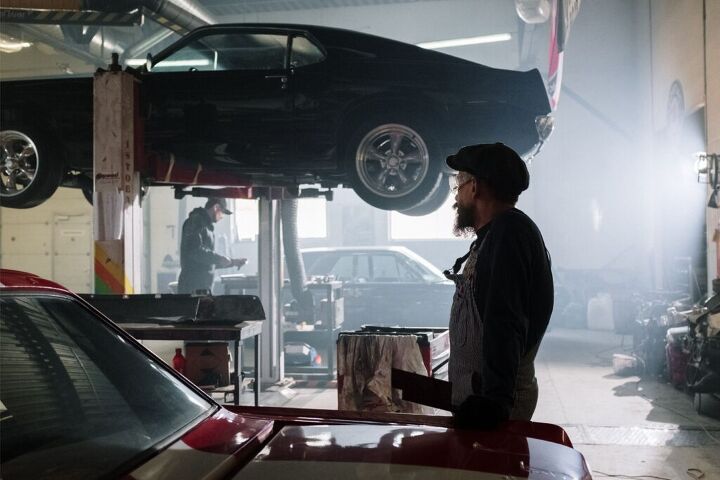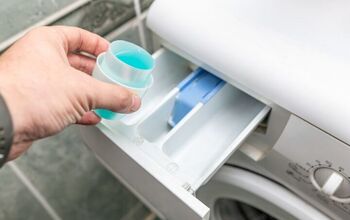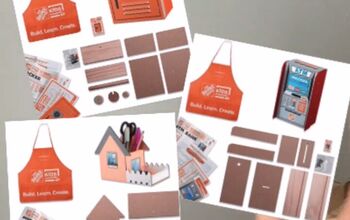How To Reduce Car Expenses: Make Your Car Last Longer

This post may contain affiliate links. Read the disclosure.
Cars are expensive, so, understandably, you want yours to last as long as possible. You may have heard the best way to do this and avoid harsh acceleration, braking, and turning. Unfortunately, most of us don’t live in a world where everyone always drives like that.
There must be another way to help your vehicle last longer. While no magic formula will keep any car going forever, there are specific measures you can take to extend its lifespan and reduce maintenance costs simultaneously.
Following these tricks and tips gives your car the best chance of lasting for as many miles as possible.
Common Car Expenses
Every driver should have a basic overview of ordinary car expenses. Some significant repairs and costs associated with car ownership can lead to financial ruin if you do not know what you are spending and how to protect yourself from monetary challenges. The most common car expenses include:
- Repairs
- Fuel expenses
- Maintenance
- Tires
- Insurance
- Finance fees
- Depreciation
- Taxes and licensing
Car repairs can cause a heavy financial burden. That is especially so when it comes to tech-related issues. Your car will never be immune to breakdown and damage. A few years from now, your vehicle will not be in the same shape and condition that it is today. That is due to the aging of some components or parts and frequent wear and tear.
How Expensive Car Repairs Can Impact Your Financial Well-Being
Many car owners do not have an emergency fund for car repairs. Unfortunately, emergency repairs can destroy your budget and cause financial distress. When the unexpected happens, it can be challenging to know what to do, especially if you need your vehicle for work or other essential activities. You do not expect your car to break down soon.
The cost of trying to repair a damaged car can add up faster than expected. Whether mechanical issues, body damage, or something else, not all repairs are worth the cost. Sometimes, repairing your car costs more than the car’s value.
How To Reduce Car Repair Costs
You do not have to ensure financial distress to get your car fixed. Of course, you do not look forward to taking your vehicle to the repair shop. However, it is an inevitable certainty given enough time. So, you cannot avoid car repair costs. However, you can take specific steps to reduce the money they set you back. Some of the ways to save money on car repair costs include:
- Know your car to prevent costly and unnecessary repairs.
- Drive carefully.
- Keep your extended car warranty valid.
- Create an emergency fund.
- Invest in routine tune-ups.
- Do not forget to replace brake pads.
- Change the oil every three months.
- Learn how to fix simple car problems.
- Do your homework on repair costs for your car.
- Ask for aftermarket parts.
- Be wary of entire system warnings.
- Lower your insurance deductible.
- Look for online coupons.
- Consider a regional chain.
Routine Maintenance
Ensure you keep up with routine maintenance. Long-term maintenance includes regularly changing your oil, checking your fluids, and rotating your tires.
Follow the maintenance schedule in your owner manual, and update the records to reflect the maintenance and repairs on your car. If you find that your routine maintenance is easily forgotten or neglected, sign up with the mechanic’s shop you prefer for service reminder emails.
You will also need to occasionally replace the tires, battery, brakes, timing chain, and serpentine belts. These are all longer-term parts, but they will eventually wear out and need replacement.
Change Your Oil Regularly
The oil change is the one maintenance task that most people know. Regularly changing the oil helps keep your engine running smoothly. If you wait too long, it will gum up and start to smell bad. Many people do it every 3,000 to 5,000 miles, but if you wait for longer, you’re putting unnecessary stress on your engine.
Check And Maintain Your Tires
Checking your tires’ air pressure is a simple maintenance task that can help prevent a car accident. Underinflated tires can cause you to oversteer, which can lead to accidents. If you notice signs of damage, like uneven wear, or a leak, you should replace your tires as quickly as possible. If a tire is worn, it could blow out at any time, so it’s crucial to replace it.
Don’t Forget Regular Tune-Ups
Although modern cars are more reliable than ever, they’re not maintenance-free. It would help if you got regular tune-ups to identify and fix issues before they become problems. Check your car manual or with your mechanic to find out how often they recommend you get tune-ups.
You can extend the life of your car by regularly changing your car fluids (oil, transmission fluid, coolant, etc.) and getting regular maintenance on your vehicle. A mechanic can help you determine when to get work done on your car. While you can’t make your car last forever, you can help it last a long time.
Keeping up with regular maintenance and getting your vehicle checked out if something seems off will go a long way towards keeping it running smoothly for a long time.
Replace Broken Parts ASAP
If you notice something wrong with how your car operates, get it checked out as soon as possible. If it turns out you need to replace a part, do it as soon as you can. For example, if you notice an issue with your truck, get genuine Ford F150 parts to replace the broken part immediately.
Mechanics recommend that you replace broken parts as soon as something goes wrong to ensure everything is working as it’s supposed to. If you wait too long, other components may break down, too, due to a lack of maintenance. The earlier you fix things, the less likely it is that other things will break down in the future.
Careful Driving Habits
Driving carefully and following the posted speed limits is crucial for the safety of yourself and others on the road, and it can also help extend your car’s life. Hitting a pothole or driving too fast over a bumpy stretch of road can cause damage to the chassis or suspension system of your vehicle, which can be expensive to repair.
Safe driving habits can also help you save money on car insurance premiums.
But what are the benefits of safe driving habits? For one thing, it can help you avoid accidents. And not just minor fender benders but serious collisions that can result in injuries or even death.
Perhaps most importantly, safe driving can protect the lives of yourself and others. Your life—and the lives of others—may depend on it. So next time you get behind the wheel, remember the benefits of driving safely and make it a priority.
Inspect Your Car Regularly
As anyone who has ever been in a car accident can attest, even minor damage to your vehicle can significantly impact your life. In addition to being without a car, repairs can be costly and time-consuming. That’s why it’s so important to stay on top of the condition of your vehicle.
After every drive, take a quick walk around your car to look for any new damage. If you find any, make a note of it and schedule an appointment with your mechanic to have it repaired. By catching problems early, you can save yourself a lot of headaches (and money) down the road.
If you notice a noise or a strange ride sensation after a long trip or a jarring impact like a pothole, inspect the car and take it to your trusted mechanic to find the issue before it causes a dangerous breakdown.
A Clean Car Is A Happy Car
As any car owner knows, regular maintenance is essential for keeping your vehicle in good condition. In addition to taking your car in for regular tune-ups and oil changes, it’s also necessary to regularly clean your vehicle’s interior and exterior.
A clean car is a happy car, and it’s easier to notice new damage when your vehicle is clean. Plus, a clean car looks better. When cleaning the exterior of your vehicle, be sure to wash, wax, and polish it to help protect the paint job.
For the interior, vacuum the seats and floor mats and wipe down the surfaces. Don’t forget to empty the ashtrays and trash cans! A little bit of elbow grease goes a long way towards maintaining a happy and healthy car.
The Right Tool For The Job
No matter what you use your car for, keeping it in tip-top shape will keep you and your fellow drivers safe. Staying on top of essential maintenance to prevent significant repairs will keep the wheels turning.
Whether you’re driving a large truck to support your construction business, a minivan to haul your child’s cub scout pack around, or a high-efficiency coupe to deliver door dash, you will want your car to be in its best condition possible.
When you take the time to care for your car, it will last as long as needed. You can avoid common issues that shorten a car’s lifespan with proper maintenance and driving habits.
When buying a car, it’s essential to think about the long-term. Your car can last for years and provide reliable transportation with proper care. However, suppose you don’t take care of your car. In that case, you may be dealing with unexpected repairs and shortening their lifespan.
Extended Warranty
Another option is to purchase an extended warranty to help your car’s financial and mechanical upkeep.
An extended warranty, like those found at CarShield Warranty or endurance warranty reviews, covers much of the cost associated with major repairs to your car when mechanical issues arise. An extended warranty typically covers long-term maintenance, such as a transmission replacement or repair.
Conclusion
Fortunately, there are some simple things you can do to keep your car running smoothly.
- First, make sure to follow the manufacturer’s recommended maintenance schedule. This will help to prevent common problems like engine wear and fluid leaks.
- Second, try to avoid harsh driving conditions whenever possible. This includes things like driving on unpaved roads or in extreme weather conditions.
- Finally, be sure to purchase an extended warranty for your car to cover the cost of any unexpected repairs that come up.




















Comments
Join the conversation
There is no valid reason to change engine every 3 months, especially with modern cars that have such high quality machining with extremely low tolerances. Terrible advice that will only cost you money without any return on investment.
Use only synthetic oil and the recommend time frame is 10,000 miles. Also the manufacture recommended maintenance is for them to make a buck not to save you one. You need to do certain things such as clean your fuel injectors and change your air filters including the cabin air filter. Sometimes you can just blow them clean with an air compressor. Anything else only need done when something is wrong. Why would you preemptively change bearings or brakes or rotors or engine flushed or tranny flushes. Actually sealed transmissions tend to have problems right after you flush them and the debris gets circulating in the transmission. Change the oil and maintain tire rotations and know your vehicle. When it doesn’t seem like it’s operating as usual get it checked. I do agree with fixing what’s broke ASAP so as not to create further issues with other parts. Keep it clean especially in the snow and salt season to prevent rust and to be sure you can see everything accurately to be sure it looks good and nothing is broken.